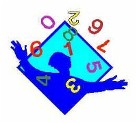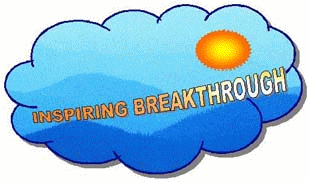

    |
||||||||||||
 |
Inspiring Breakthrough |
|||||||||||
Multiple IntelligencesBy incorporating into the learning experience a mixture of activities that meet the 8 different styles of learning ensures maximum effectiveness, input and retention. There are 8 learning styles or intelligences as researched and published by Howard Gardner: Musical, Kinaesthetic, Mathematical / Logical, Visual / Spatial, Linguistic, Interpersonal, Intrapersonal and Naturalist. In the following pages you can learn more about each intelligence and suggestions on how to develop these further. Logical Mathematical IntelligenceSome individuals are able to learn just about anything using their logical skills. They are able to calculate and work out relationships and connections between items. They enjoy mental challenges seeking out solutions to logical, abstract and mathematical problems and have good deductive reasoning skills. On a lesser scale, thy may simply excel at games involving skill and strategy such as chess or computer battle games. Logical-Mathematical Intelligence may be defined as the ability to appreciate and calculate the effect of actions upon objects or ideas and the relationships among them. To apply inductive and deductive reasoning skills, to provide solutions and to overcome complex mathematical and logical challenges as well as solving critical and creative problems. Individuals with Logical-Mathematical Intelligence will fall into one or perhaps all of the following sectors:-
To exhibit strong Logical-Mathematical Intelligence, it is not necessary for you to be good at maths - the very act of selecting key points in a logical, systematic numbered sequence can be evidence of this intelligence. The very act of investigating and analysing allows you to go beneath the surface of what you may be learning so as not to simply take it at face value. Develop Your Logical / Mathematical Intelligence by:To improve your Logical-Mathematical Intelligence, it is not necessary for you to be good at maths. We may all benefit from increasing this intelligence for many reasons. The very act of selecting key points in a logical, systematic numbered sequence can help you to think more carefully about what you may be learning. The very act of investigating and analysing allows you to go beneath the surface of what you may be learning so as not to simply take it at face value.
Ask yourself the following questions, and if you don’t know the answers, go find out!
To further develop your learning styles we strongly recommend the following:
Howard Gardners brilliant conception of individual competence is changing the face of education today. In the ten years since the publication of his seminal Frames of Mind , thousands of educators, parents, and researchers have explored the practical implications of Multiple Intelligences (MI) theory the powerful notion that there are separate human capacities, ranging from musical intelligence to the intelligence involved in understanding oneself. Multiple Intelligences: The Theory in Practice brings together previously published and original work by Gardner and his colleagues at Project Zero.
The author demonstrates that there exist many human "intelligences", common to all cultures - each with its own pattern of development and brain activity, and each different in kind from the others. These potentials include linguistic, musical and logical/mathematical capacities, as well as spatial and bodily intelligences, and the ability to arrive at an emotional and mental sense of self and other people. Rather than reducing an individual's potential to a single score on an IQ test, it is the fostering and education of all these intelligences that should be our concern.
Other Inspiring Breakthrough Multiple Intelligences within this section; Musical Individual
Performance Improvement OUR MISSIONInspiring Breakthrough aim to create behavioural change, within organisations, through inspiring coaching and tailored development solutions. By empowering individual breakthrough from perceived potential to the achievement of their true potential. Click here to ask any questions about how we can help you improve your business. |
||||||||||||
|
Copyright ©
Inspiring Breakthrough, 2003-5
|
||||||||||||